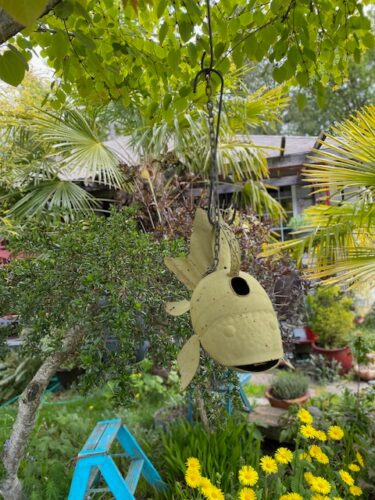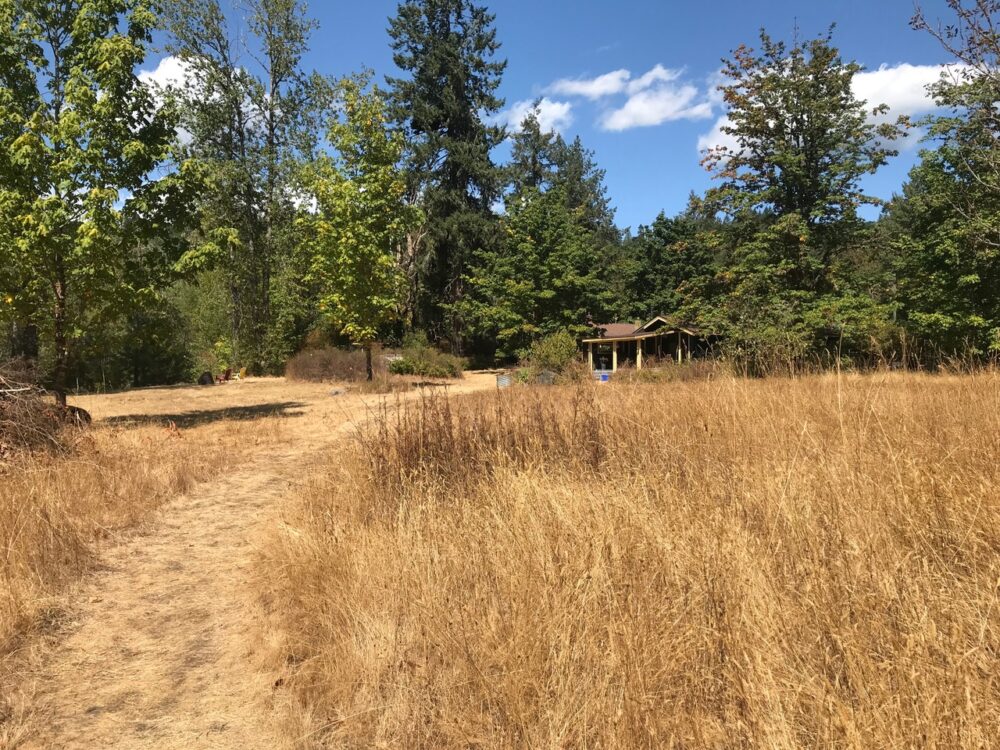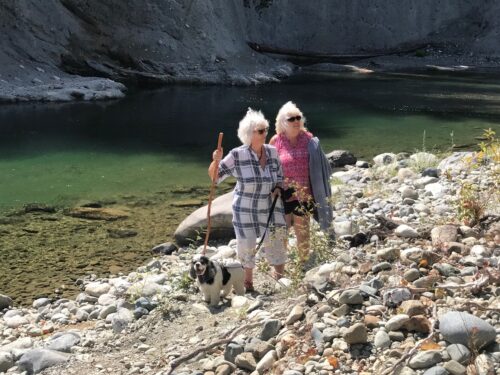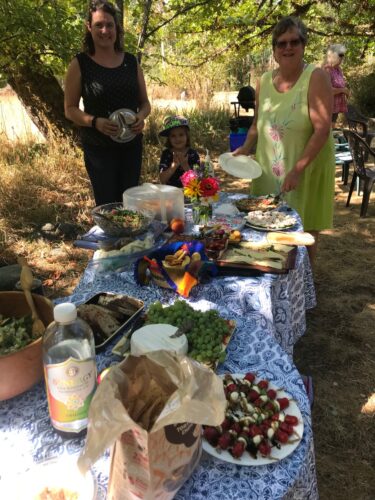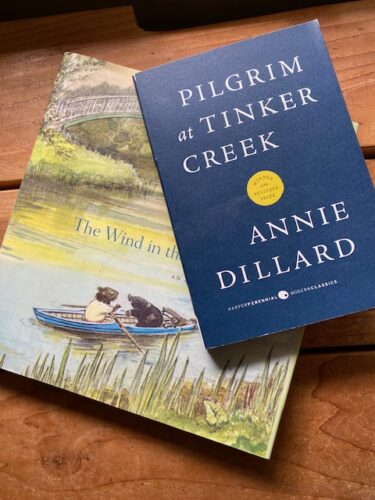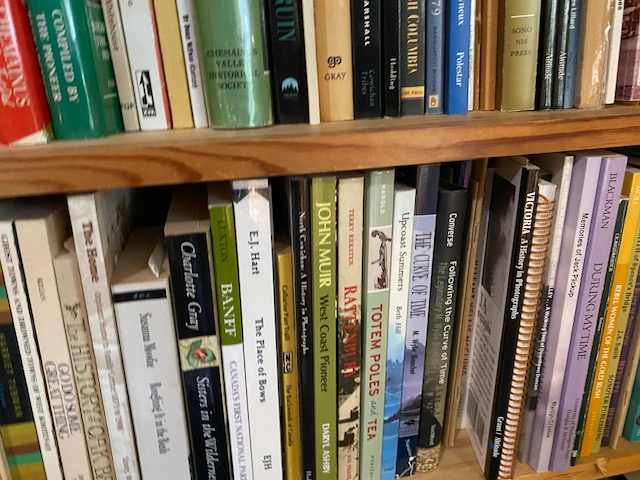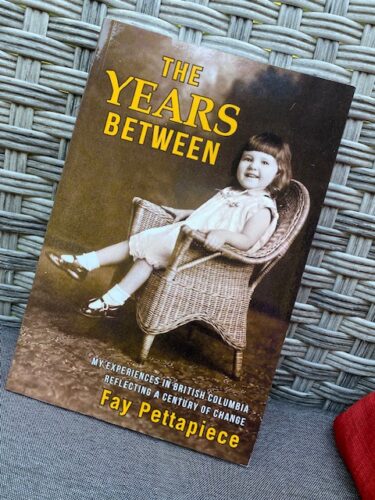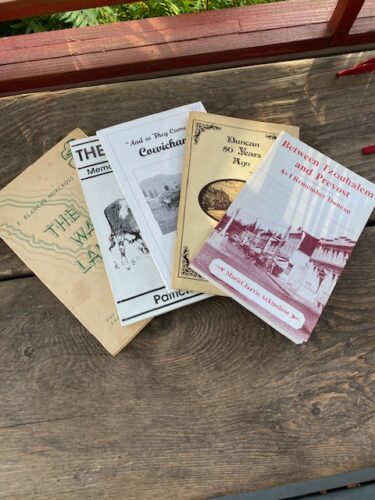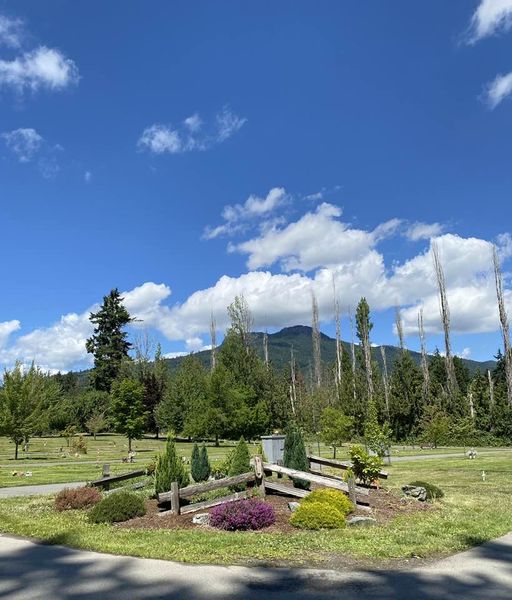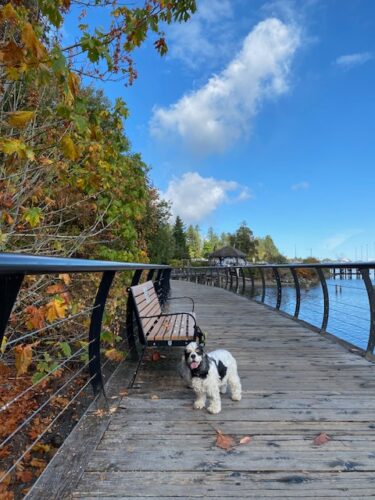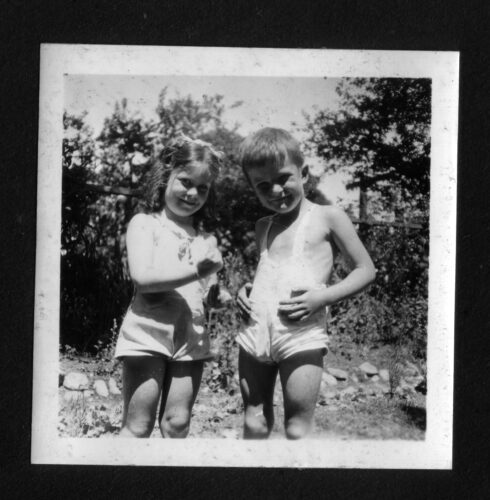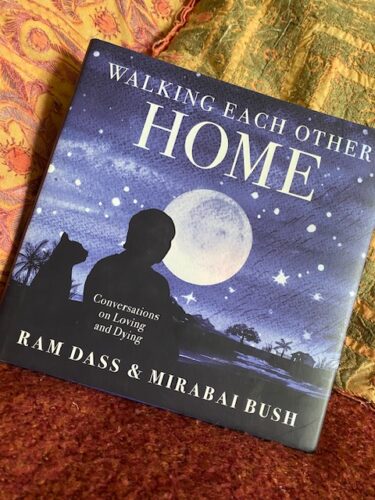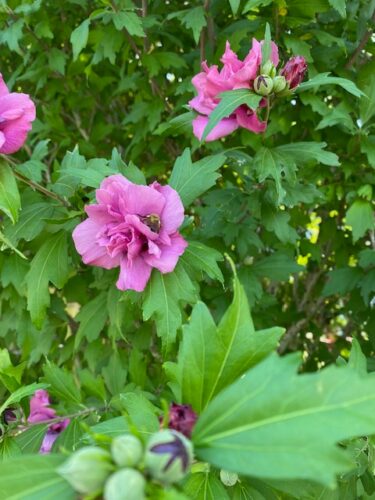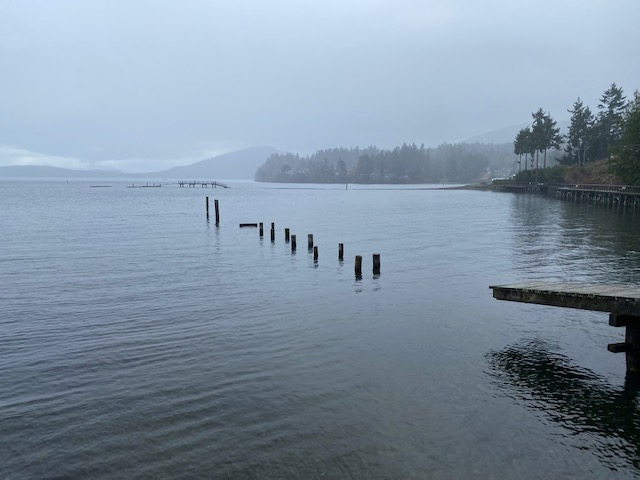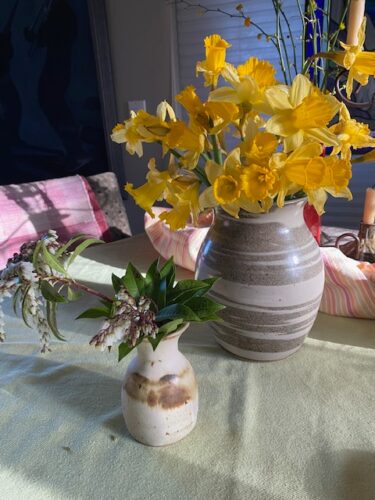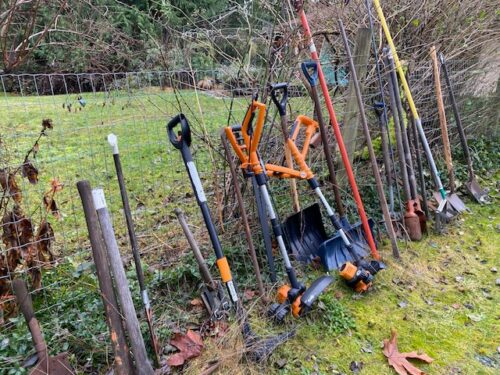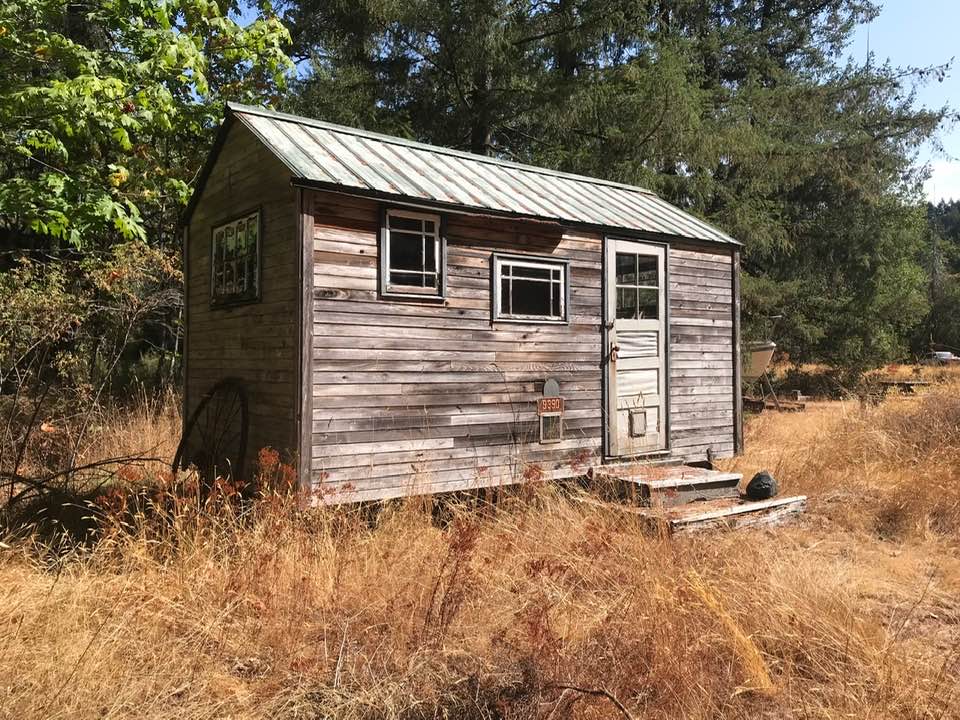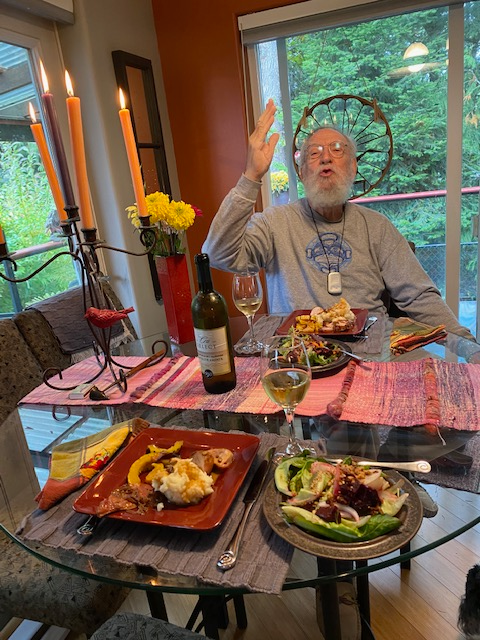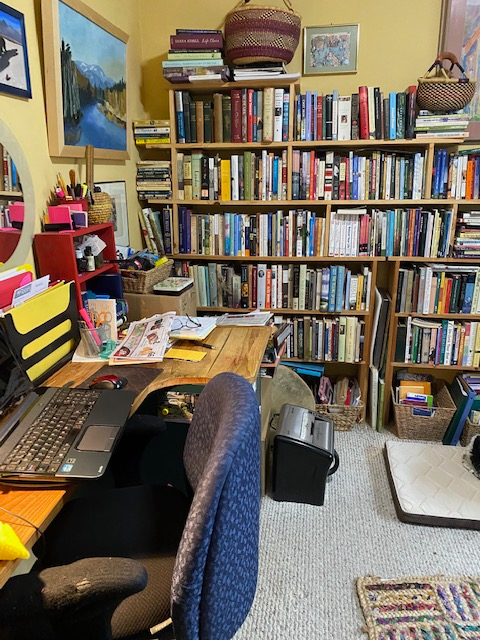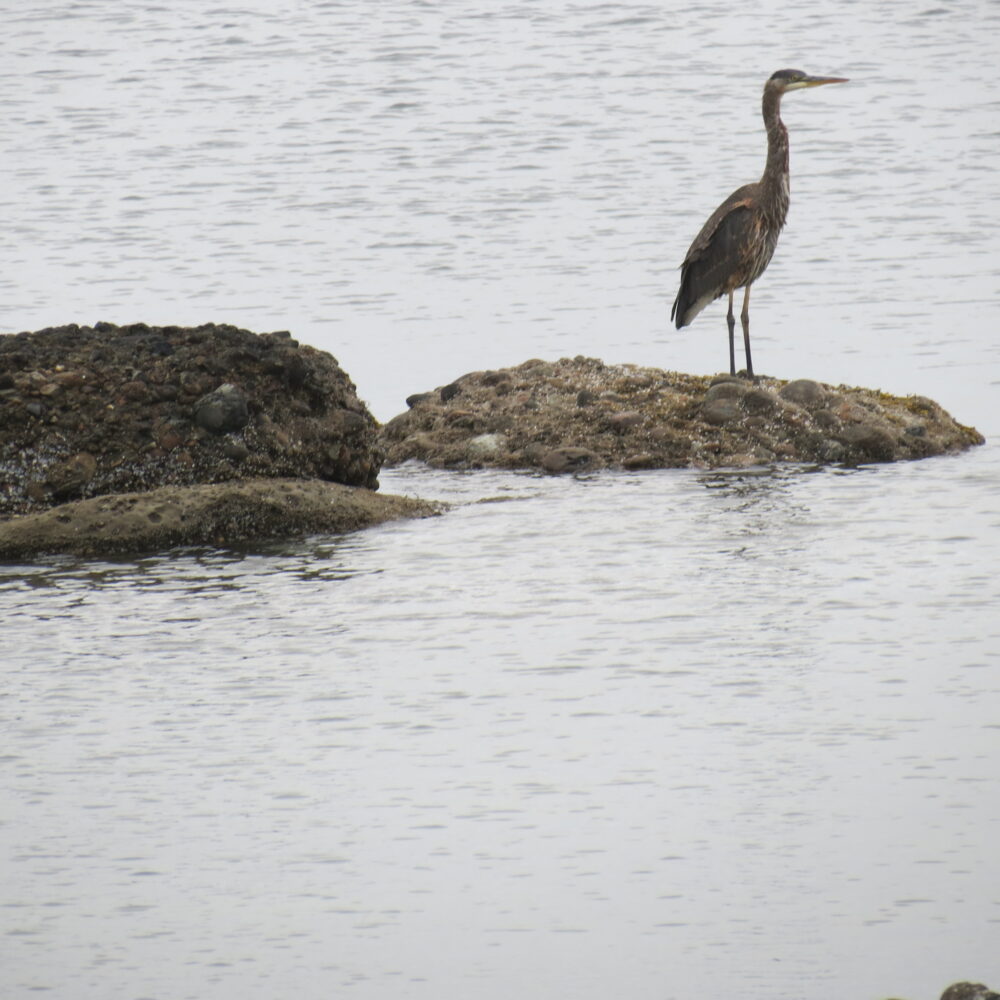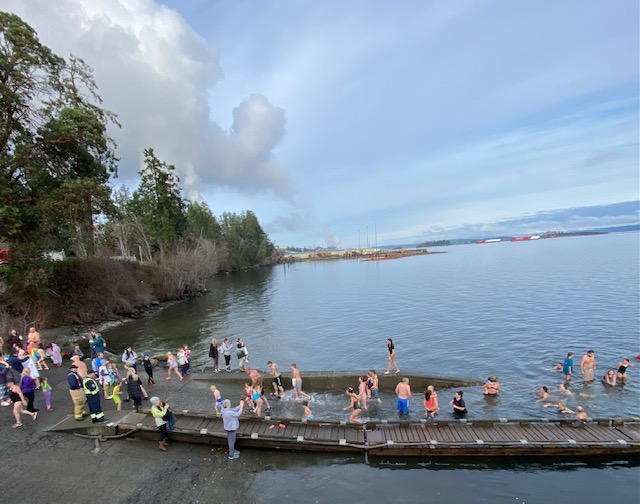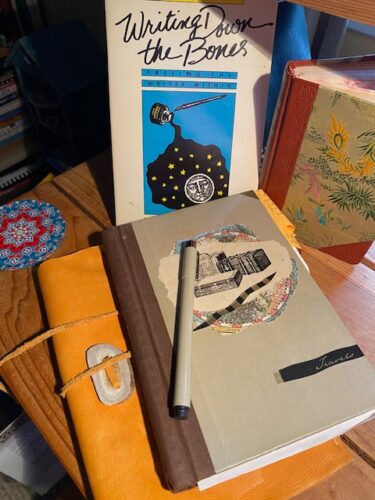SMALL MOMENTS OF HAPPINESS
Back a few years, when we were still living in Chemainus, Grant bought a new thunder-grey Nissan Tundra hot off the factory shelf. We drove into town and parked in front of the coffee shop on Willow Street. The local good old boys were having their usual ciggies and coffee at the outside tables.
We smiled and said good morning, and as we walked away from the truck, we heard one of them say, “there goes a lucky man. He’s got his truck and a good- looking woman at his side.”
“He’s got his priorities right,” Grant said as I whapped him on the arm.
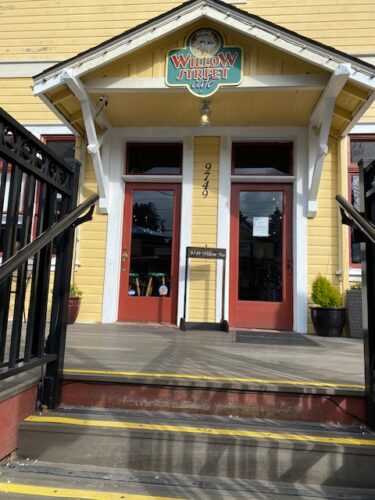
Willow Street Cafe in Fall
Flash forwards a dozen years. We were enjoying lunch on the deck at the Willow Street Café at the far end of Willow Street. Our cocker spaniel was sitting at my feet, the big patio umbrella shading us from the hot sun. The place was lively, food was good and I was on top of the world. A woman at a nearby table kept glancing over, then she caught my eye and smiled.
“Look at you!” she exclaimed in a big voice, her arms spread wide. “You’ve got your dog and you’ve got your man. You’ve got it all. Go girl.”
“She got the order reversed,” Grant grumbled later.
Ah but, it’s a happy memory for me.
Another one of those everything’s alright-in-my-world moments occurred a few years ago. It was evening, curtains closed to the rain beating against the windows, the flames on the gas fireplace flickering, Grant and I lounging in our easy chairs and our dog and cat curled up on the sofa. I couldn’t imagine anything more perfect than relaxing with a loving partner and an adored dog and cat in front of the fire. My heart was full.
But flash forward to present day. Our home is now missing a dog. Our precious cocker spaniel was run over a couple of years ago. And we are not ready for another dog. Grant’s cat allergies are worsening and we should be rehoming our cat. But I can’t bring myself to do it. The heart has gone out of our home.
For the sake of Grant’s health, we are keeping the cat out of our bedroom. Conrad’s favourite place to sleep was on a cushy chair next to my side of the bed.
Now I am doing ‘cat training’ which consists of patiently ignoring his tales of woe as I try to sleep (fat chance) while he serenades me loudly outside our bedroom door. He is an indoor/outdoor cat and we don’t have a cat door. I am the doormat, er doorman. The first night that I left him outside when I went to bed, he scratched on the bedroom window and cried for two hours. I cried too. I let him in and he continued his sad tale at the bedroom door.
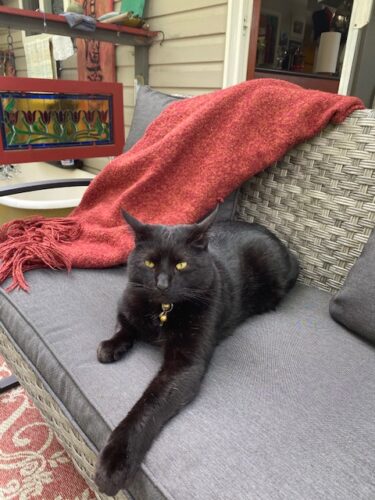
Last night he changed his pleas to more conversational tones, sweet meows with up and down notes accompanied by quick bursts of scratching the door jamb. I hope that means my side is winning. He can lure you into complacency with his sweetness. The goal is to have him content to sleep in a different room from Grant and me and to keep Grant’s allergies manageable.
Conrad left his original home when he was young and pushed his way in with us. I packed him up once and moved him and his expensive cat tree back to his first home, a couple of houses away. (Grant’s doctor’s orders re allergies.) He was back with us very quickly, minus the cat tree, his cat siblings had taken it over.
So, this is round two and I will stick it out because I don’t want to send him away even if it means I stagger around half asleep looking like something the cat dragged in. Now isn’t that an appropriate metaphor?
I will keep you posted.
Signed, obedient cat servant and juggler.
Note: The two “Willow Street” anecdotes in this blog are included in my upcoming memoir (working title) And the Dog Came Too.
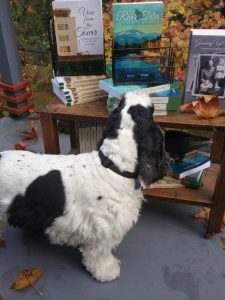
My tri-colour American Cocker Spaniel Blaze, curious about my book display.
If you enjoyed this and are curious about more content from an Island Crone, please subscribe from my web page/blog sidebar. I promise to post at least once a month and sometimes more. But not often enough to bore.
~ Island Crone by Liz Maxwell Forbes
Growing Up Weird: A memoir of an Oak Bay childhood
River Tales: Stories from My Cowichan Years


